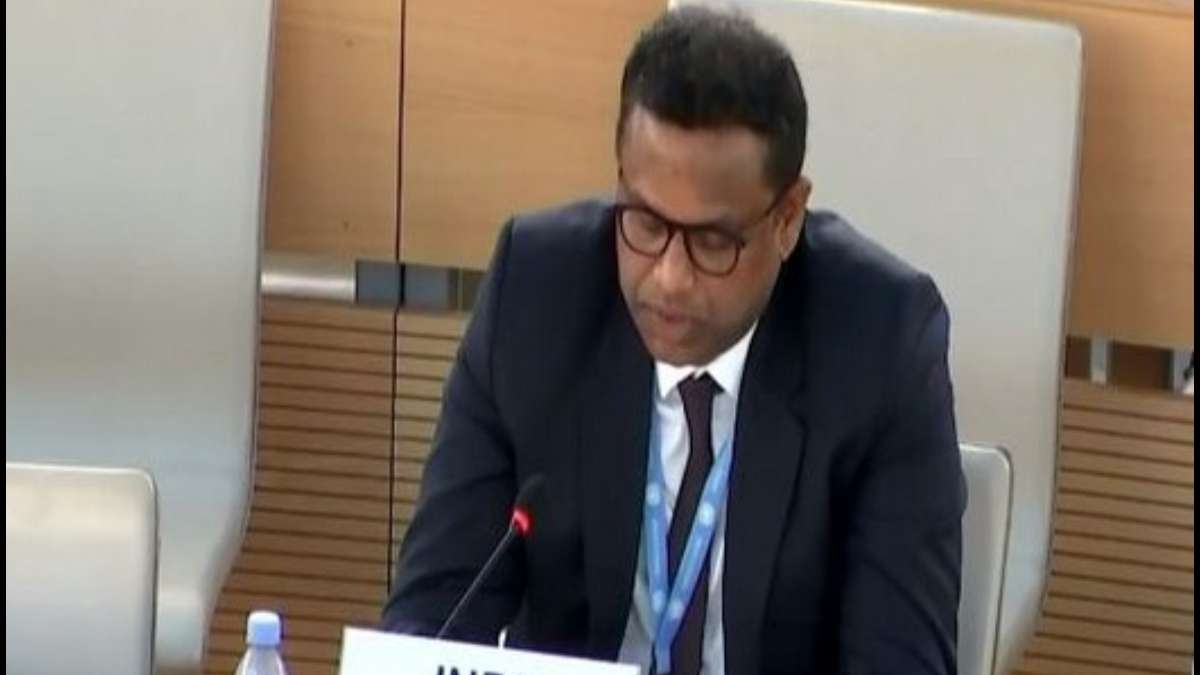
[ad_1]

Amid diplomatic tensions between both countries, India on Monday laid out recommendations for Canada to take stronger action against misuse of freedom of expression, preventing activities of groups promoting extremism and addressing hate crimes and hate speech.
During the UN Human Rights Council review meeting, Indian diplomat Mohammed Hussain presented proposals for Canada, along with diplomats from Bangladesh and Sri Lanka. Hussain noted Canadian legislative enactments such as the National Housing Strategy Act, Accessible Canada Act, and the National Strategy to counter human trafficking.
“In the spirit of constructive dialogue, India recommends the following to Canada – further, strengthen the domestic framework to prevent misuse of freedom of expression, for inciting violence and disallow activities of groups which are promoting extremism, effectively prevent attacks on places of worship of religious and racial minorities, strengthen legislative and other measures to address hate crimes and hate speech,” he said during the meeting.
The Indian diplomat also asked Canada to end structural discrimination against children belonging to indigenous groups and address disparities in access to services by all children.
Additionally, Bangladeshi diplomat Abdullah Al Forhad recommended that Canada intensify efforts against racism, hate speech, hate crimes, and discrimination against migrants and Muslim minorities. They also called for measures to reduce carbon emissions and urged international cooperation in addressing climate change impacts.
Sri Lankan diplomat Thilini Jayasekara also called on Canada to accede to the Convention on the Protection of Rights of All Migrant Workers, take measures against racial discrimination affecting immigrants’ rights, counter misinformation against minority communities, and strengthen its national mechanism for comprehensive reporting and follow-up on international human rights recommendations.
What is the India-Canada diplomatic row?
Diplomatic relations between India and Canada reached an all-time low after Canadian Prime Minister Justin Trudeau alleged that he has “credible information” about India’s link with the killing of Khalistani terrorist Hardeep Singh Nijjar. The Ministry of External Affairs had rejected the claims as “absurd and motivated” and said that Ottawa did not proffer any “proof” that could ascertain the Canadian PM’s claim.
After the expulsion of diplomats from both countries, India briefly cancelled visa services for Canadian nationals and asked the Canadian embassy to minimise the diplomatic presence as it considered Ottawa had much staff whose roles were questionable.
Canada has evacuated its 41 diplomats and 42 other members of the staff from India after New Delhi said that it would revoke their diplomatic immunity. Canadian Prime Minister Melanie Joly called the act a violation of international law, which was subsequently rejected by India. New Delhi later resumed visa services in Canada for four categories – Entry visa, Business visa, Medical visa and Conference visa.
Trudeau’s recent remarks
Trudeau on Sunday again provoked India by saying that New Delhi’s action of revoking the “diplomatic immunity” of Canadian envoys was “a violation of the Vienna Convention”. “We have serious reasons to believe that agents of the government of India could have been involved in the killing of a Canadian citizen on Canadian soil and India’s response is to kick out a whole bunch of Canadian diplomats by violating their rights under the Vienna Convention,” he said.
“That is of concern to countries around the world because if a given country can just decide that their diplomats of another country are no longer protected, that makes international relations more dangerous and more serious,” added the Canadian PM.
Trudeau said that Canada tried to work “collaboratively” and “positively” with New Delhi and added Ottawa will continue to work with Indian counterparts. “This is not a fight we want to be having right now but we will unequivocally always stand up for the rule of law…,” added Trudeau.
Meanwhile, responding to the US State Secretary Antony Blinken’s statement that the US wants to see Canada moving its investigation forward on Nijjar and that India needs to help make it happen, the Canadian PM said, “From the very beginning when we learned of credible allegations that agents of the Indian govt were involved in the killing of a Canadian citizen on Canadian soil, we reached out to India to ask them to work with us in getting to the bottom of this matter.”
(with inputs from ANI)
ALSO READ | Canada enhances security after Khalistani terrorist Pannun warns to blow up Air India flight
[ad_2]
Source link